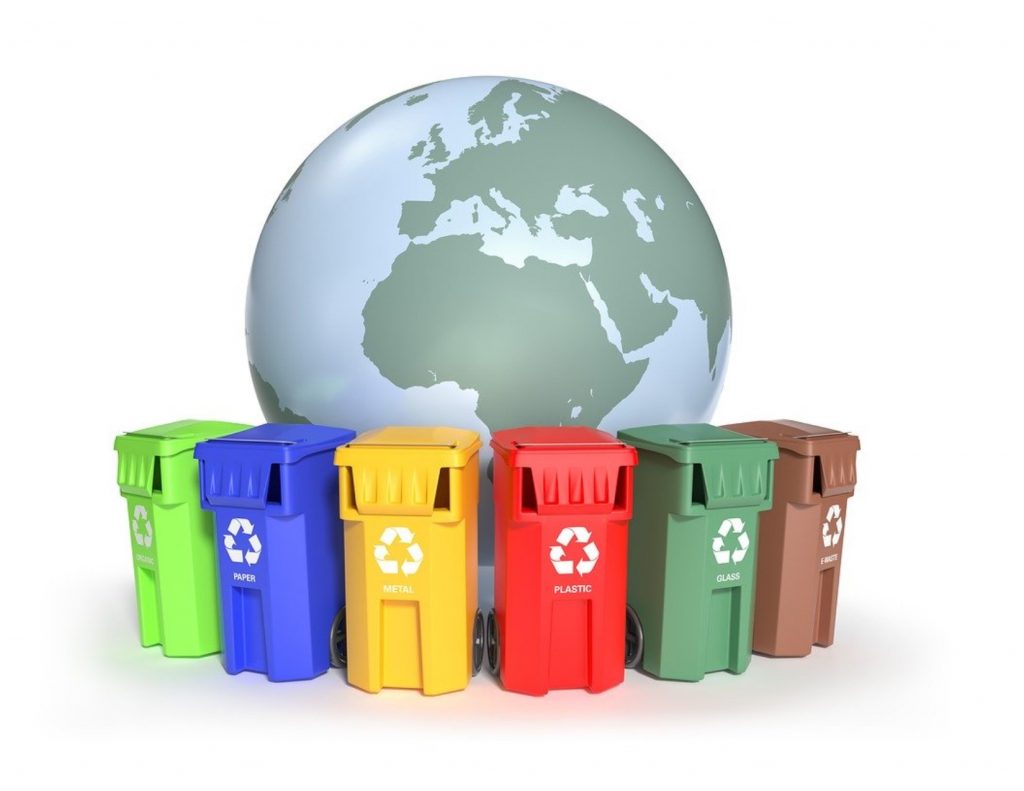America Recycles Day is the only nationally recognized day and coast-to-coast community-driven awareness campaign dedicated to promoting and celebrating recycling in the United States. It has been held on – and in the weeks leading into – Nov. 15 since 1997. America Recycles Day is a national initiative of Keep America Beautiful and is the only nationally-recognized day dedicated to promoting and celebrating recycling in the United States.
Thousands of communities across the country participate in activities to raise awareness and encourage others to take action to increase and improve recycling in America. It is also a way to elevate Keep America Beautiful and its partners’ yearlong efforts to improve participation in recycling by helping people across the country better understand what to recycle – whether at home, at school, at work, or on-the-go.
“America Recycles Day provides a key moment in time to regain momentum for recycling in America, and to help make recycling a daily social norm across the country,” said Brenda Pulley, senior vice president, recycling, Keep America Beautiful. “Get involved by conducting an America Recycles Day event in your hometown. Take the “#BeRecycled” Pledge and invite your friends, family and neighbors to do the same. Let’s get people recycling in every aspect of their lives – at home, at work and on the go!”
There are many actions each of us can take to reduce our environmental impact and support a clean community. One of the easiest actions to take every day is to recycle. According to the Environmental Protection Agency, each of us generates over 4 pounds of trash daily. Of that amount, 1.5 pounds is recycled or composted. There are more items that can be recycled; but just as important, it is about recycling the right things. To make recycling more economically efficient and to provide cleaner material to manufacturers to make new products – putting the right items in the recycling bin makes a big difference.
FACTS:
- There are environmental and economic benefits of recycling.
- Recycling conserves natural resources, saves energy and reduces the need for landfill space.
- Americans recycle and compost 87 million tons annually, which is a 34% rate of waste diversion. [Source: U.S. EPA]
- That conserves the equivalent of energy consumed by over 10 million households (1.1 quadrillion BTUs)
- That is the Greenhouse Gas equivalent of taking 39 million passenger vehicles off the road for a year. (186 million metric tons of CO2e)
- Making recycling convenient – 73% of the U.S. population has access to curbside recycling – will help improve our national rate of recycling. [Source: Sustainable Packaging Coalition]
- Recycling provides material for manufacturing new products. For example:
- Recycled plastic milk bottles can become an outdoor park bench;
- A cereal box can become a board game;
- An aluminum can become a new aluminum can; or
- A plastic water bottle can become a new pair of jeans.
- A steel food can could become a bicycle
- Reducing food waste saves money. It is estimated that on average a family of four throws away food worth $2,275 each year. [Source: Natural Resources Defense Council]
- Recycling is a multi-billion industry that employs millions of Americans. Commercial and municipal recycling represents nearly $106 billion in economic activity annually and is responsible for over 470,000 direct and indirect U.S. jobs, generating more than $4.3 billion in state and local revenues annually, and another $6.76 billion federal taxes. [Source: ISRI. To find out more about the economic benefits in your state: http://www.isri.org/recycling-industry/jobs-in-the-u-s-scrap-recycling-industry/job-study-analysis#.WBfe7cJ4dYc]
- The value lost by discarding packaging rather than recycling it is estimated to be over $11 billion. [Source: As you Sow]

NATURE NUGGET:
The wild turkey (Meleagris gallopavo) is an upland ground bird native to North America and is the heaviest member of the diverse Galliformes. It is the same species as the domestic turkey, which was originally derived from a southern Mexican subspecies of wild turkey. Although native to North America, the turkey probably got its name from the domesticated variety that was imported to Britain in ships coming from the Levant via Spain. The British at the time therefore associated the wild turkey with the country Turkey and the name prevails.
NATURE QUOTE:
This quote is similar to the PA Dutch belief of “waste not, want not.” Reduce, reuse, repair, refuse and recycle.


“Porcupine Pat” McKinney is environmental education coordinator for the Schuylkill Conservation District and provides programming for people of all ages with an emphasis on schools, public programming and nature center development. “Porcupine Pat” hails from Marion, Ohio and has a BS with Distinction in Natural Resources – Environmental Interpretation from Ohio State. He is a recipient of the prestigious Sandy Cochran Award for Excellence in Natural Resources Education from the PA Forestry Association, the Schuylkill Pride Award, and the PAEE “Outstanding Environmental Educator Award.”




